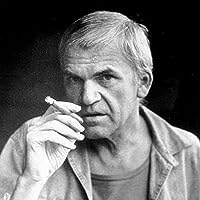Ambiguity Quotes
Quotes tagged as "ambiguity"
Showing 1-30 of 143

“I wanted a perfect ending. Now I've learned, the hard way, that some poems don't rhyme, and some stories don't have a clear beginning, middle, and end. Life is about not knowing, having to change, taking the moment and making the best of it, without knowing what's going to happen next.
Delicious Ambiguity.”
―
Delicious Ambiguity.”
―

“Be patient toward all that is unsolved in your heart and try to love the questions themselves, like locked rooms and like books that are now written in a very foreign tongue. Do not now seek the answers, which cannot be given you because you would not be able to live them. And the point is, to live everything. Live the questions now. Perhaps you will then gradually, without noticing it, live along some distant day into the answer.”
―
―

“To learn which questions are unanswerable, and not to answer them: this skill is most needful in times of stress and darkness.”
― The Left Hand of Darkness
― The Left Hand of Darkness

“We might not be able to know what reality is about, but we can’t but be aware of the explicitness of facts. To get a better grip on the intricate nature of the truth and its ambiguity, we have got to scrutinize facts and find out about their codes. But, yet, we can’t ignore that reality is a very intriguing place, since facts may be construed, receive variant contexts and create alternate outcomes, which, in turn, might spark new realities, over again. ("Imbroglio" )”
―
―

“Some use "ambiguity" as their native language and prefer to hide behind a veil of para-social intrigue or deceit. They readily apply a strategy of a condescendingly friendly approach. Still, as we can capture arresting signals that urge us to defuse a dire threat of besiegement, we can decipher any shrouded or manipulative intentions and steer clear of unforeseen pitfalls. ("Finally things had lost their weightiness")”
―
―

“As long as there have been men and they have lived, they have all felt this tragic ambiguity of their condition, but as long as there have been philosophers and they have thought, most of them have tried to mask it.”
― The Ethics of Ambiguity
― The Ethics of Ambiguity

“The ideal art, the noblest of art: working with the complexities of life, refusing to simplify, to "overcome" doubt.”
― The Journal of Joyce Carol Oates: 1973-1982
― The Journal of Joyce Carol Oates: 1973-1982

“There are no self-proclaimed villains, only regiments of self-proclaimed saints. Victorious historians rule where good or evil lies.”
― Chronicles of the Black Company
― Chronicles of the Black Company
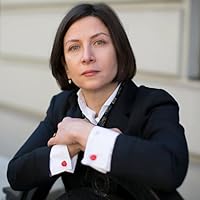
“…I’ve come to realize that the only truths that matter to me are the ones I don’t, and can’t, understand. What’s mysterious, ambiguous, inexplicable. What doesn’t fit into a story, what doesn’t have a story. Glint of brightness on a barely-there chain. Patch of sunlight on a yellow wall. The loneliness that separates every living creature from every other living creature. Sorrow inseparable from joy.”
― The Goldfinch
― The Goldfinch

“The notion of ambiguity must not be confused with that of absurdity. To declare that existence is absurd is to deny that it can ever be given a meaning; so to say it is ambiguous is to assert that it's meaning is never fixed, that it must be constantly won. Absurdity challenges every ethics; but also the finished rationalization of the real would leave no room for ethics; it is because man's condition is ambiguous that he seeks, through failure & outrageousness, to save his existence.”
― The Ethics of Ambiguity
― The Ethics of Ambiguity

“Isn’t life a collection of weird quizzes with no answers to half the questions?”
― Coinman: An Untold Conspiracy
― Coinman: An Untold Conspiracy
“Stories start in all sorts of places. Where they begin often tells the reader of what to expect as they progress. Castles often lead to dragons, country estates to deeds of deepest love (or of hate), and ambiguously presented settings usually lead to equally as ambiguous characters and plot, leaving a reader with an ambiguous feeling of disappointment. That's one of the worst kinds.”
― Sydney West
― Sydney West

“The sign stopped me-- or rather, this text stopped me. Words are my profession; I seized these and demanded that they explain themselves, that they cease to be ambiguous.”
― Ishmael: An Adventure of the Mind and Spirit
― Ishmael: An Adventure of the Mind and Spirit

“What it means to be a good person, a moral person, is calculated differently in times of crisis than in ordinary circumstances,” she says. She pulls up a slide of people having a picnic by a lake. Blue skies, green trees, white people.
“Suppose you go with some friends to the park to have a picnic. This act is, of course, morally neutral, but if you witness a group of children drowning in the lake and you continue to eat and chat, you have become monstrous.”
― Weather
“Suppose you go with some friends to the park to have a picnic. This act is, of course, morally neutral, but if you witness a group of children drowning in the lake and you continue to eat and chat, you have become monstrous.”
― Weather

“There's a certain amount of ambiguity in my background, what with intermarriages and conversions, but under various readings of three codes which I don’t much respect (Mosaic Law, the Nuremberg Laws, and the Israeli Law of Return) I do qualify as a member of the tribe, and any denial of that in my family has ceased with me. But I would not remove myself to Israel if it meant the continuing expropriation of another people, and if anti-Jewish fascism comes again to the Christian world—or more probably comes at us via the Muslim world—I already consider it an obligation to resist it wherever I live. I would detest myself if I fled from it in any direction. Leo Strauss was right. The Jews will not be 'saved' or 'redeemed.' (Cheer up: neither will anyone else.) They/we will always be in exile whether they are in the greater Jerusalem area or not, and this in some ways is as it should be. They are, or we are, as a friend of Victor Klemperer's once put it to him in a very dark time, condemned and privileged to be 'a seismic people.' A critical register of the general health of civilization is the status of 'the Jewish question.' No insurance policy has ever been devised that can or will cover this risk.”
― Hitch 22: A Memoir
― Hitch 22: A Memoir

“In the end, it’s not the obviousness or the complexity of the matters that’s deluding mankind. It’s man himself.”
― Coinman: An Untold Conspiracy
― Coinman: An Untold Conspiracy
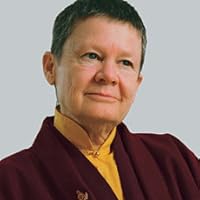
“Whether it’s ourselves, our lovers, bosses, children, local Scrooge, or the political situation, it’s more daring and real not to shut anyone out of our hearts and not to make the other into an enemy. If we begin to live like this, we’ll find that we actually can’t make things completely right or completely wrong anymore, because things are a lot more slippery and playful than that. Everything is ambiguous; everything is always shifting and changing, and there are as many different takes on any given situation as there are people involved. Trying to find absolute rights and wrongs is a trick we play on ourselves to feel secure and comfortable.”
― When Things Fall Apart: Heart Advice for Difficult Times
― When Things Fall Apart: Heart Advice for Difficult Times
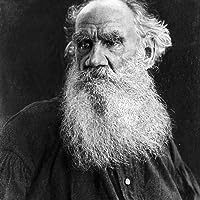
“The doctor arrived towards dinnertime and said, of course, that although recurring phenomena might well elicit apprehension, nonetheless there was, strictly speaking, no positive indication, yet since neither was there any contraindication, it might, on the one hand, be supposed, but on the other hand it might also be supposed. And it was therefore necessary to stay in bed, and although I don't like prescribing, nevertheless take this and stay in bed.”
― The Devil
― The Devil

“The many meanings of 'evolution' are frequently exploited by Darwinists to distract their critics. Eugenie Scott recommends: 'Define evolution as an issue of the history of the planet: as the way we try to understand change through time. The present is different from the past. Evolution happened, there is no debate within science as to whether it happened, and so on... I have used this approach at the college level.'
Of course, no college student—indeed, no grade-school dropout— doubts that 'the present is different from the past.' Once Scott gets them nodding in agreement, she gradually introduces them to 'The Big Idea' that all species—including monkeys and humans—are related through descent from a common ancestor... This tactic is called 'equivocation'—changing the meaning of a term in the middle of an argument.”
― The Politically Incorrect Guide to Darwinism and Intelligent Design
Of course, no college student—indeed, no grade-school dropout— doubts that 'the present is different from the past.' Once Scott gets them nodding in agreement, she gradually introduces them to 'The Big Idea' that all species—including monkeys and humans—are related through descent from a common ancestor... This tactic is called 'equivocation'—changing the meaning of a term in the middle of an argument.”
― The Politically Incorrect Guide to Darwinism and Intelligent Design

“I will complain, yet praise;
I will bewail, approve:
And all my sowre-sweet dayes
I will lament, and love.”
― The Temple: The Poetry of George Herbert
I will bewail, approve:
And all my sowre-sweet dayes
I will lament, and love.”
― The Temple: The Poetry of George Herbert
“Perhaps we can conceive of the ironist as the fetishist's apprentice, reaching out for all readers, ensnaring them in a tangle of ambiguity, uncertainty and indecision from which there is no escape. Irony, quite possibly, makes fetishists of us all.”
―
―
“The real secret to freedom seems to lie in the ability to deal with ambiguity, the capacity to tolerate noise and yet hear within its wild randomizing abandon the possibilities of innovation and transformations.”
―
―
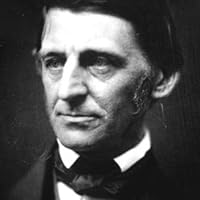
“I overhead Jove, one day,' said Silenus, 'talking of destroying the Earth; he said it had failed; they were all rogues and vixens, who went from bad to worse, as fast as the days succeeded each other. Minerva said she hoped not, they were only ridiculous little creatures, with this odd circumstance, that they had a blur, or indeterminate aspect, seen far or seen near; if you called them bad, they would appear so; if you called them good, they would appear so; and there was no one person or action among that which would not puzzle her Owl, much more all Olympus, to know whether it was fundamentally bad or good.”
―
―
All Quotes
|
My Quotes
|
Add A Quote
Browse By Tag
- Love Quotes 97k
- Life Quotes 75.5k
- Inspirational Quotes 72.5k
- Humor Quotes 43.5k
- Philosophy Quotes 29.5k
- Inspirational Quotes Quotes 27k
- God Quotes 26k
- Truth Quotes 23.5k
- Wisdom Quotes 23.5k
- Romance Quotes 23k
- Poetry Quotes 22k
- Death Quotes 20k
- Happiness Quotes 18.5k
- Life Lessons Quotes 18.5k
- Hope Quotes 18k
- Faith Quotes 18k
- Quotes Quotes 16.5k
- Inspiration Quotes 16.5k
- Spirituality Quotes 15k
- Religion Quotes 15k
- Motivational Quotes 15k
- Writing Quotes 14.5k
- Relationships Quotes 14.5k
- Life Quotes Quotes 14k
- Love Quotes Quotes 13.5k
- Success Quotes 13.5k
- Time Quotes 12.5k
- Motivation Quotes 12k
- Science Quotes 11.5k
- Knowledge Quotes 11k


